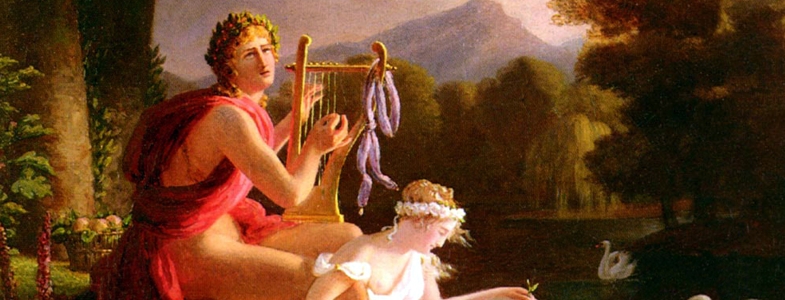Dafne is the earliest known work that, by modern standards, could be considered an opera. It was composed by Jacopo Peri in 1598 and the libretto was written by Ottavio Rinuccini.
Dafne was performed by a small ensemble consisting of a harpsichord, a lute, a viol, an archlute and a triple flute. For the first time Peri composed something based on recitative, a melodic speech set to music, as the main part of the opera.
The story focuses on the love story between the god Apollo and the nymph Dafne. The characters are: Ovidio, Venus, Cupid, Apollo, Dafne and Nunzio. Jacopo Peri wrote Dafne for a small group of intellectuals from Florence, who were part of the Camerata de’ Bardi (active between 1594 and 1597), with the support and collaboration of the musician and patron Jacopo Corsi.
The opera was probably staged privately on the 26th of December 1598 in Palazzo Tornabuoni and represented an attempt to revive the Greek drama, following new standards. It was very different from what the ancient Greeks would have approved, but it became a new type of entertainment that would have developed throughout the following 400 years.
Most of Peri’s music has been lost, despite his popularity in Europe at the time of the publications.
However, a libretto of 455 verses survived to this day. Significant pieces are: “Almo dio che ‘l carro ardente…“, “Da fortunati campi ove immortali…“, “Non curi la mia pianta o fiamma o gelo…“.
The Medici family, the ruling family in Florence, was so impressed by the opera that they decided to commission to Peri the opera “Euridice”. It had to be performed on occasion of the wedding between Maria de’ Medici and Henry IV in 1600.
A second version of Dafne with Vittoria Archilei was performed publicly for the first time on the 21st of January 1599 in Palazzo Pitti.


